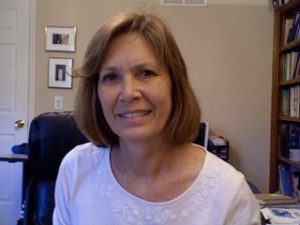
Would it have mattered if, as children, we’d been taught
to attend to the vanishing? If we’d practiced
hearing the migrating songbirds churring above us
each autumn, or the waning buzz of insect wings
in the meadow as summer lifted away? If we’d risen
at dawn for the synchronized hatch of a thousand
mayflies, or listened to catch the squeals of bats
in the evening fields, or an elephant’s low-pitched
mourning for one of its own? What if we’d tuned
our ears to the various strains of silence
back when they signaled nothing more dire
than a shift of season?
I read this week
that a billion song birds die each year in the U.S. alone
head-butting a hard, glass sky in a rush
to drive off their own reflections. A billion.
How vast a caesura. Why have I never noticed
the hush we wake to on New Year’s Day with
another year and a billion birds missing?
If a single tree fell—to lightning or ice-storm, to blight,
to flame, or to trucks come to clear-cut the lots
for the new subdivisions—would anyone hear it?
What if we’d learned how to gauge the pitch
of the wind-hum or hear new gaps in the hush
of an evening rain? How long have I been
hard enough of heart to accept the fact of birds
crashing headlong against the glass
of my sunroom? Or so hard of hearing I miss
the crash of a forest falling?
What a heart rending snd beautifully crafted poem
This brought me to tears this morning. Absolutely beautiful sentiments about learning to listen to the breath of silence, which in the natural world is anything but quiet. I read the same news about the birds and wondered why this warning siren hasn’t elbowed its way onto every front page of every newspaper in the world?? The rest of the “news” is chaff. On this, our wild beautiful planet, a billion dead birds gives new meaning to “canary in a coal mine.”
This poem is an arrow into the bulls -eye, A core understanding of human impact in every way upon the planet’s other inhabitants, and magnificently expressed in her poetic voice. brava!!
Well said; the poem feels reflective of our collective sadness as we increasing become aware of the destruction we’ve done to our environment.
Well said; the poem feels reflective of our collective sadness as we increasing become aware of the destruction we’ve done to our environment.
Beautiful work. The spaces between. How we depend on these openings to escape ourselves. Wonderful thoughts and marvelously observed.
Thank you for this marvelous poem.
I read it one morning, and that afternoon happened to be reading “Ruins and Poetry” in Czeslaw Milosz’s The Witness of Poetry.
The poem and the essay resonated strongly, amplifying each.
“What surrounds us, here and now, is not guaranteed. It could just as well not exist – and so man constructs poetry out of the remnants found in the ruins.”
Thanks again.